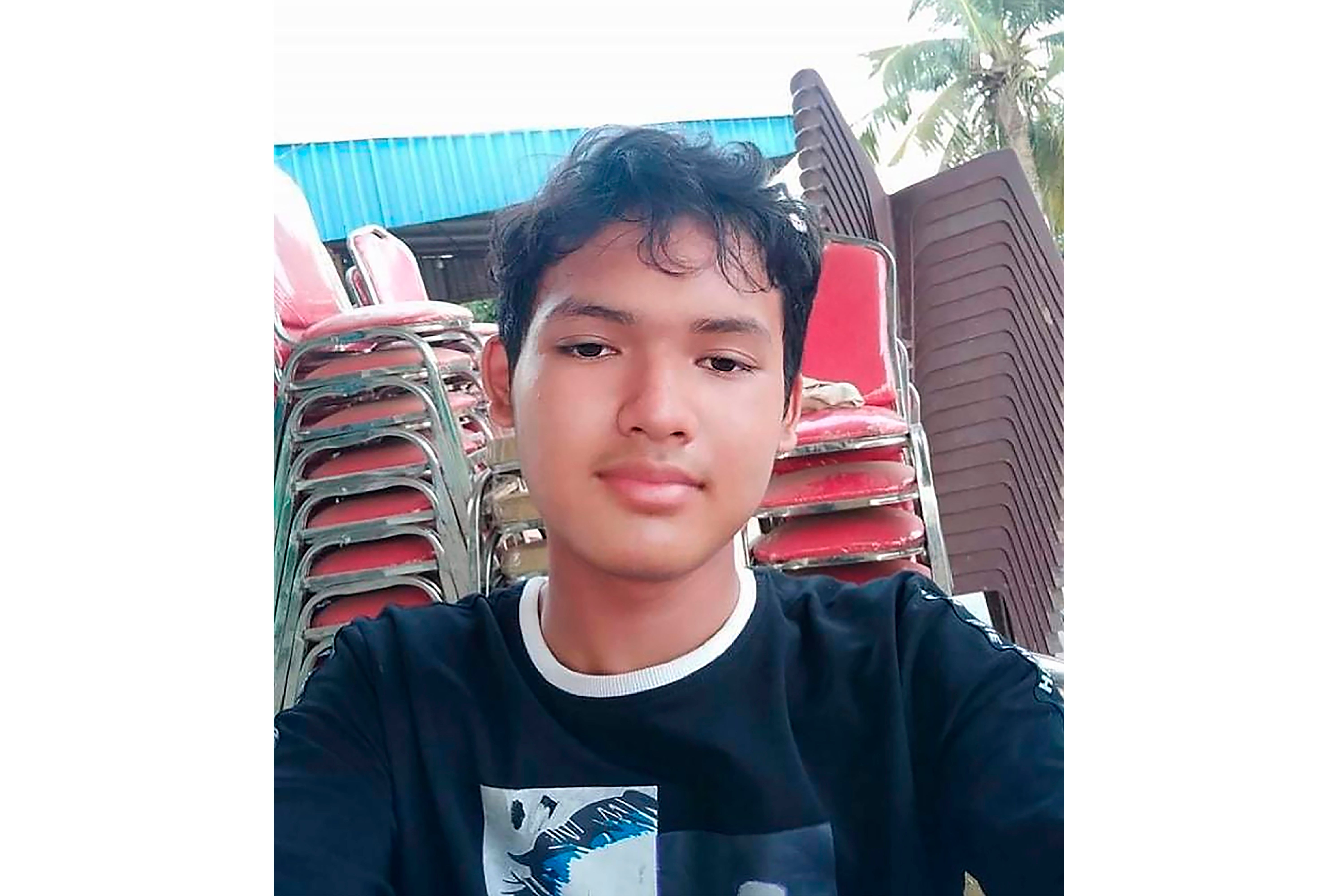Rights groups decry conviction of autistic Cambodian teen
Rights groups are urging Cambodian authorities to release an autistic teenager who was sentenced to eight months in prison for social media posts critical of the government

Rights groups are urging Cambodian authorities to release an autistic teenager who was sentenced to eight months in prison for social media posts critical of the government, saying Tuesday his case was being misused to intimidate his opposition activist parents.
Kak Sovannchhay, 16, was convicted Monday of incitement to commit a felony and public insult by a Phnom Penh municipal court for comments he had made in a Telegram chat group defending his father, a senior political opposition member who is himself in custody facing charges, and for sharing Facebook posts criticizing Prime Minister Hun Sen.
His mother, Prum Chantha, said her son has trouble communicating with others and could not follow the court proceedings, adding that he has gotten worse during his months in custody ahead of the verdict.
“Is there any court in the world that would convict and sentence an autistic boy?” she said. “There is not.”
Prum Chantha is a member of the group Friday Wives, which holds protests to demand the release of their husbands who have been jailed for expressing their views critical of Hun Sen's government. Her husband, Kak Komphear, has been in detention since May 2020.
“This case is solely based on Sovannchhay being the son of a former opposition member, who himself is jailed and persecuted for his political affiliations,” said Phil Robertson, deputy Asia director of Human Rights Watch in a written statement.
Robertson said the conviction should be quashed and Kak Sovannchhay immediately released.
“This whole trial proves once again just how broken Cambodia’s justice system is,” he said.
U.S. Ambassador to Cambodia W. Patrick Murphy said in a Twitter post after the verdict that he was “saddened” to hear the court had “sentenced a child to prison time for what appears to be politically motivated charges.”
“How does jailing the teenage son of an opposition figure demonstrate respect for human rights?" Murphy wrote.
Prime Minister Hun Sen has been in power for 36 years and has often been accused of heading an authoritarian regime and using the judicial system to help stifle opposition.
During the trial, the court refused two requests to evaluate the boy’s disability and support needs, according to Human Rights Watch, and no accommodations were made for him during his time in police custody and questioning, nor while being held before trial.
Plang Sophal, spokesman for the Phnom Penh Municipal Court, said he was not medically qualified to assess the boy's autism, but that the trial was conducted according to the rule of law. He refused further comment.
Kak Sovannchhay's attorney, Sam Sokong, said the posts the teen made came in response to others calling his father a traitor, and that he had no idea his words could get him in trouble, and no memory of what he had even said.
“I asked him to repeat, or try to remember any words but he can't,” he told The Associated Press. “He has completely forgotten.”
Following the Telegram exchange on June 24, another member of the message group reported Kak Sovannchhay and within hours armed police showed up at his home and arrested him.
Kak Sovannchhay has been in custody since then, and even though his trial concluded Oct. 13, the judge postponed the verdict until Monday.
With his time already served, and under Cambodian sentencing guidelines, Kak Sovannchhay will be released Nov. 9, his mother said.
After he is home, she and his attorney will decide whether to file a formal appeal to try and reverse the conviction, she said.
United Nations human rights experts have followed the case from the start and urged Kak Sovannchhay's release already in early September before he went to trial.
On Tuesday, experts appointed by the U.N. human rights council accused the Cambodian government of “weaponizing” its court system to silence dissent, following the verdict.
“The conviction of a minor with an autism spectrum disorder is a shameful nadir in the authorities’ continuing campaign of intimidation and violence against civil society and opposition activists and affiliates,” they said in a statement from Geneva.
Bookmark popover
Removed from bookmarks